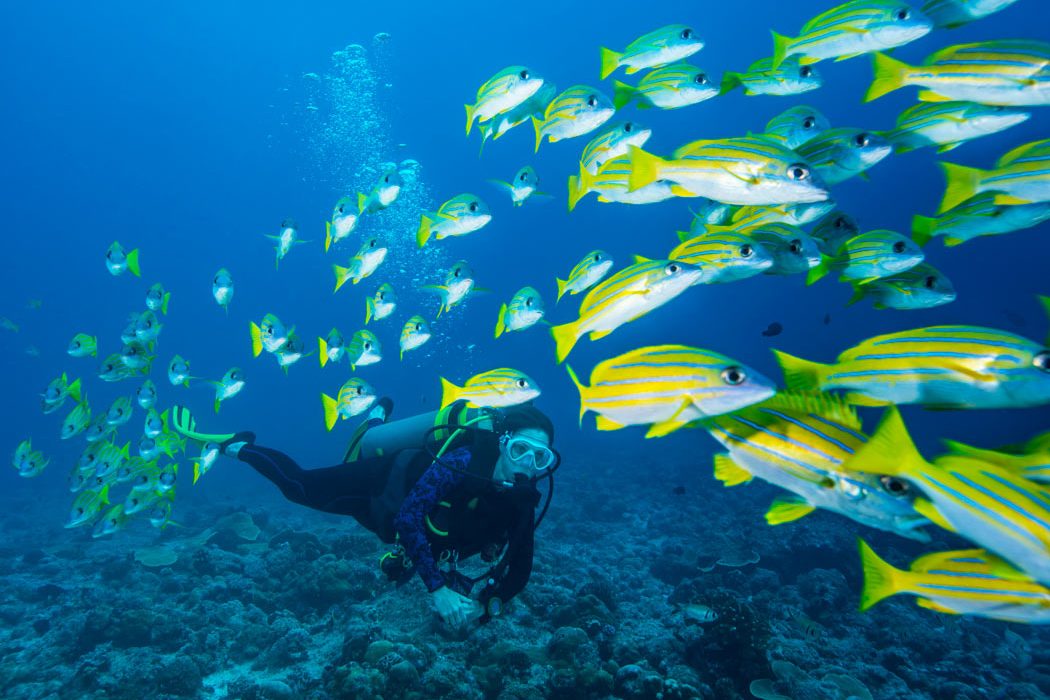DIVERS HAVE LONG RECOGNIZED that they have “felt better” when they have been enjoying their favorite sport. Recently Samir Becic, author of ReSync Your Life, summed up some of the reasons diving can be good for you. His list of benefits include:
Physical fitness: swimming is both an aerobic and an anaerobic workout providing a workout that puts very little strain on joints.
Flexibility and strength: diving against the resistance of water and current strengthens muscles, increases endurance and may help you develop flexibility.
Breathing: the deep, steady breathing optimizes air consumption and bottom time while promoting a calm attitude and reduces stress.
Social health benefit: finding a tribe of other like-minded individuals that share a common interest provides a sense of community. Sharing experiences promotes the feeling of well-being even after the dive is over.
Travel: dive travel is another way to extend the social benefit, provides education and an opportunity spend time with people from your tribe.
Sunlight: safe exposure to sun supplies the body with vitamin D, which promotes the absorption of calcium in the body, is responsible for the transference of calcium within cells, provides strength to bones and increases endorphin production in the brain.
But these listed benefits have all been anecdotal. However, a recent study led by Alice Morgan and published in the Journal of Disability and Rehabilitation has confirmed that scuba diving does have therapeutic benefits for military veterans with physical and psychological injuries as a result of combat. The study was conducted in 2016 but the results have just been published. The research included quantitative studies of mental well-being and functional ability, as well as interviews with participants, families and health professionals.
The purpose was to explore the effectiveness of scuba diving in providing therapeutic and rehabilitative benefit to ex-service personnel who have experienced traumatic physical and/or psychological injuries resulting from combat. The study took the form of a service evaluation of Deptherapy, a UK-based niche charity offering support to military veterans who have experienced life-changing injuries. Deptherapy provides scuba diving qualifications, consisting of theory and practical diving experience, to participants alongside a Peer Support Buddy scheme that provides continuing support to servicemen involved with the charity. A total of 15 male veterans were invited to take part in the study. The methods used included measures of past and current mental well-being and functional ability. The study also used follow-up interviews (utilizing guided questions) with the participants, their families and health professionals. Participants reported an improvement in levels of anxiety, depression and social functioning and a reduction in insomnia, following their involvement in organized scuba diving activities. The individuals involved who said that they felt they were “better” were usually those whose injuries had caused more psychological rather than physical injuries. The study’s conclusion was that scuba diving can offer significant therapeutic benefits, particularly for ex-military amputees experiencing anxiety and/or chronic psychological adjustment disorder.
Read the entire study at tandfonline.com.






